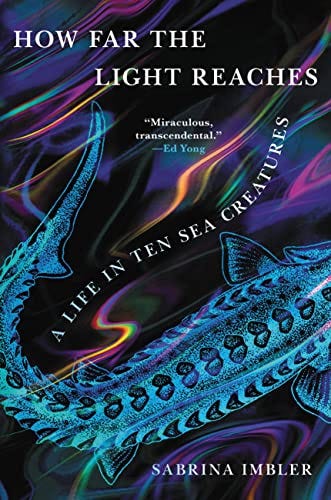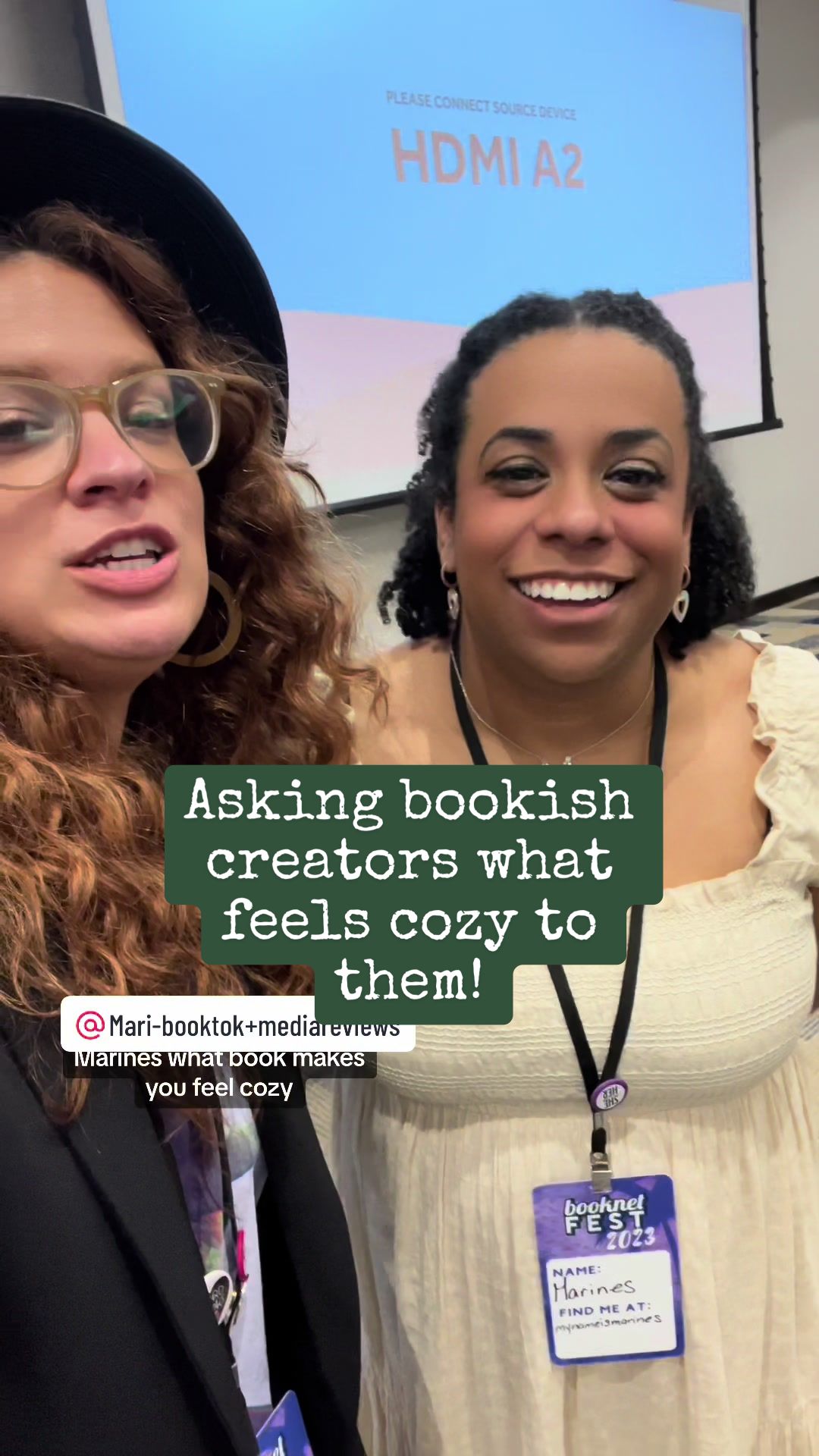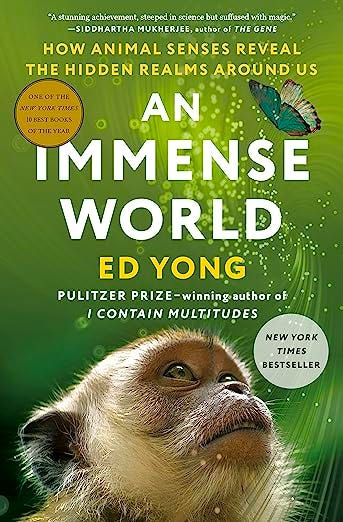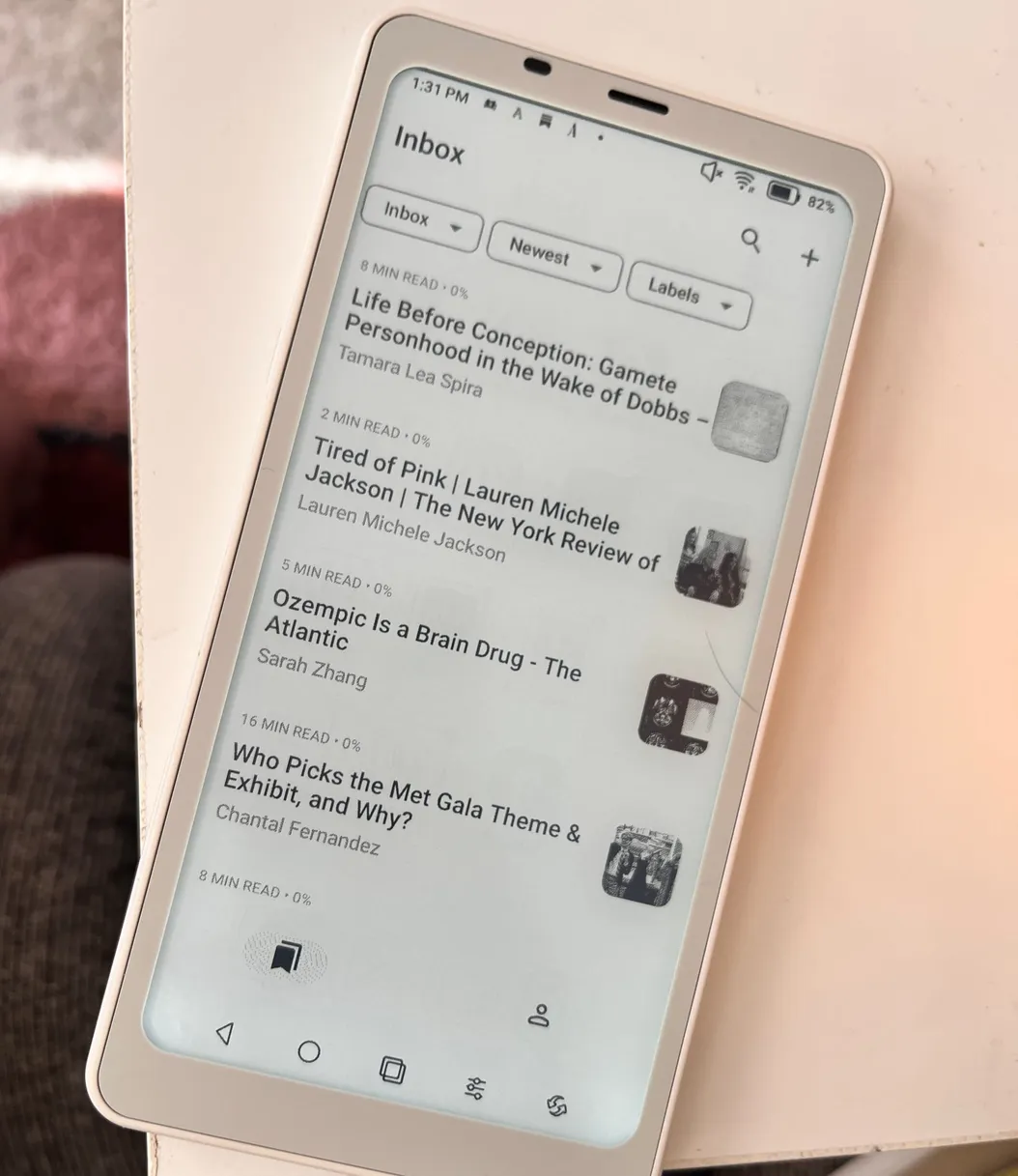Thanks for reading okidokiboki Newsletter! Subscribe for free to receive new posts and support my work.
a science thing:
Between nonfiction book club and judging the Booktube Prize, my science book reading has gotten a lot better over the past few years. So here are two books that I’ve thought about quite a bit this year, both of which happen to be about animals. (Just a head’s up: the links are bookshop affiliate links.)
How Far the Light Reaches: A Life in Ten Sea Creatures, by Sabrina Imbler

When I was at Booknet Fest, Meg’s Tea Room went around and asked different people for their idea of a cozy book:

@megstearoomI asked bookish creators and authors what story feels cozy to them! The word cozy can be so subjective and means something different for all of us. Id love to hear what unusual books you feel are cozy! #booknetfest #cozyfantasy #cozyreading #cozyfantasybooks #cozybookrecs #megstearoom

Tiktok failed to load.
Enable 3rd party cookies or use another browser
At first my mind went totally blank because I don’t think much of my reading is particularly cozy? Except then I realized that Imbler’s essay collection connecting marine life with her own personal history is what it would feel like if a warm mug of mint tea turned into a book. It’s soothing to sink into, but with a sharpness that means you’re never completely out of the moment either. Nicole and I read this book for nonfiction book club, and at the time, I never would have thought to describe the book as “cozy.” I was mostly drawn to the way Imbler connects to nature even at its most unwelcoming moments. But in the long run, “cozy” feels like the right way to describe the intimacy of those connections.
An Immense World: How Animal Senses Reveal the Hidden Realms Around Us, by Ed Yong

Every year that I judge the Booktube Prize, I end the process feeling like, “This was great, it got me to read books that I never thought I would read.” But this was a book that I knew I absolutely should read and just kept putting off because I figured I read enough about animal senses for work. Turns out, there’s reading about animal senses, and then there’s reading about animal senses in a deeply researched book that ties together the weirdest animal facts you’ve ever heard with a coherent curiosity about what these wild facts mean for the way our world is experienced. Highly recommend, especially if you love spouting off weird animal facts at people.
a reality tv thing:
With the WGA and SAG strikes going on right now, there’s been a lot of allusions to the idea that this is going to be reality tv’s moment as it fills the void left by scripted content. These kinds of comments are generally framed by a larger doom-and-gloom notion that reality tv is going to spell the end of scripted dramas, and thus the end of civilization as we know it. That particular sequence of events isn’t particularly worrisome to me, as I plan to spend the apocalypse posting Real Housewife memes on whatever social media platform I’ve finally given up Twitter for. But I’m also not celebrating the idea that we’ll somehow enter some world overflowing in reality tv. I don’t need more reality tv. I need good reality tv, whatever that ambiguously means.
As someone who writes for living, I know that treating your workers isn’t necessarily an essential component of making good creative work. Poorly treated workers make good things, and well-treated workers make bad things. It’s all possible. But it seems like you should just try to have some kind of principle about how to treat people well. And (very anecdotally and even more broadly), I think media suffers when it can’t hire good workers consistently.
I’ve been thinking about that a lot with reality tv and how it gets made because at least for the Bravo shows I watch, many of the people involved on the production side are (from my understanding) contract workers who go from project to project. I’d like to think that contract work can be used to produce consistency and stability for workers because at least (so far), that has been the case for me. But my experience (so far) seems to be more based on the luck of working with good people and a husband with tenure and health insurance, and not any sense of structural protection outside of their decency.
I don’t actually know enough about reality tv production to say what good protections for workers look like. Luckily people are exploring this more.
First up, if you want to read more on this: in the Defector article by Alex Sujong Laughlin titled “Reality TV Won’t Fix What’s Broken About Hollywood Economics,” Laughlin explores both the myth that the last writer’s strike heralded in the golden age of reality tv, and the working conditions that shape reality tv’s cast and crew today.
My other recommendation is an episode of the Reality Bites podcast, which is hosted by a reality tv enthusiast and some reality tv producers. I started listening to this podcast because of (why else) Vanderpump Rules, and their recaps are always an interesting look into how producers “see” the mechanics underlying reality tv. It’s like watching an athlete break down a complicated play on the field. And their Strike! episode was a useful discussion for understanding how the labor underlying reality tv is treated.
A thing I made
If you’re curious about my thoughts on the other books I read for the Booktube Prize semifinals, here they are:
Thanks for reading okidokiboki Newsletter! Subscribe for free to receive new posts and support my work.

